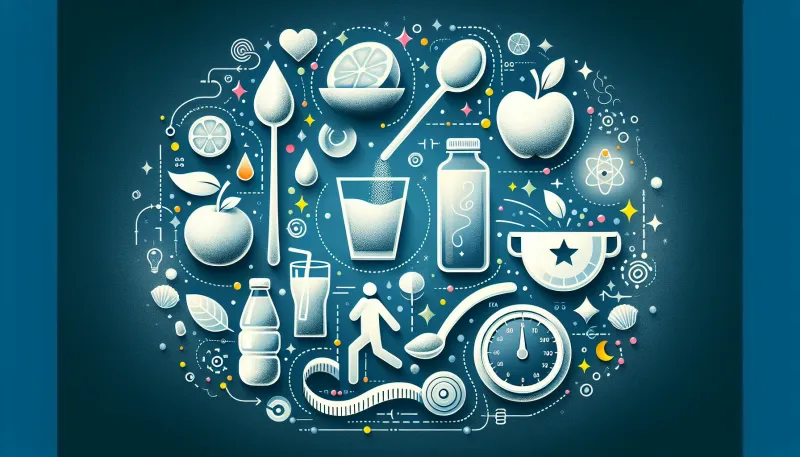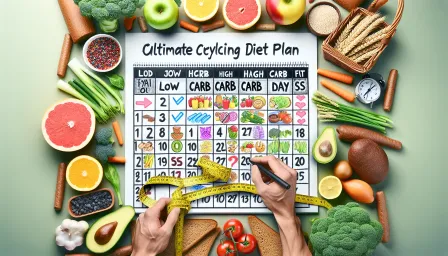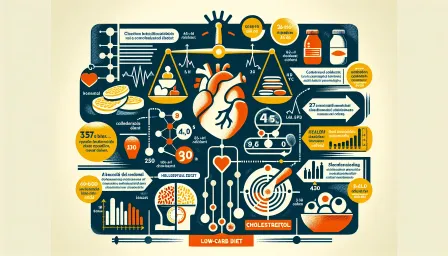Top Strategies for Sugar Reduction for Weight Loss

Explore effective strategies for sugar reduction for weight loss. Learn how reducing sugar intake can help you achieve your weight loss goals and improve overall health.
Reducing sugar intake is a pivotal strategy for weight loss. Excessive sugar consumption not only leads to weight gain but also contributes to various health issues. In this article, we will explore the top strategies for sugar reduction for weight loss, backed by scientific research and practical tips.
Why Reduce Sugar for Weight Loss?
Sugar is a major contributor to weight gain because it provides empty calories with little to no nutritional value. High sugar consumption can lead to increased fat storage, insulin resistance, and a higher risk of obesity-related diseases. By reducing sugar intake, you can control your calorie intake more effectively, promote fat loss, and improve your overall metabolic health.
Top Strategies for Sugar Reduction
1. Identify Hidden Sugars
Many foods contain hidden sugars that contribute to your daily intake without you realizing it. Read labels carefully to spot added sugars in products such as sauces, dressings, cereals, and snacks. Look for ingredients such as high fructose corn syrup, cane sugar, and dextrose.
2. Opt for Whole Foods
Whole foods, such as fruits, vegetables, lean meats, and whole grains, are naturally low in sugar. By choosing whole foods over processed options, you can significantly reduce your sugar intake. Whole foods also provide essential nutrients that support weight loss and overall health.
3. Substitute Sugary Beverages
Sugary beverages, including sodas, energy drinks, and sweetened teas, are a major source of added sugars. Replace these with water, herbal teas, or naturally flavored water with slices of fruits. These alternatives not only hydrate you but also curb unnecessary sugar consumption.
4. Control Portion Sizes
Even healthier treats like fruit and yogurt can contribute to sugar intake if consumed in large quantities. Ensure you control your portion sizes to avoid unintentionally consuming too much sugar. Use measuring cups and mindful eating techniques to monitor your intake effectively.
5. Use Natural Sweeteners Sparingly
Natural sweeteners like honey, maple syrup, and agave can be healthier alternatives to refined sugar. However, they still contribute to your overall sugar intake. Use these natural sweeteners sparingly and look for opportunities to reduce sweetness in recipes.
6. Increase Fiber Intake
Fiber-rich foods help slow down the absorption of sugar, preventing spikes in blood sugar levels. Incorporate more fruits, vegetables, legumes, and whole grains into your diet. This not only aids in sugar reduction but also supports digestive health and satiety.
7. Plan Your Meals
Planning meals ahead can help you avoid the temptation of sugary snacks and desserts. Prepare balanced meals with a focus on proteins, healthy fats, and complex carbohydrates. Meal planning also gives you better control over the ingredients used and helps to steer clear of hidden sugars.
8. Limit Highly Processed Foods
Highly processed foods are typically high in added sugars, refined carbohydrates, and unhealthy fats. Limiting your intake of processed foods can drastically reduce your sugar consumption. Opt for home-cooked meals where you can control the ingredients and avoid added sugars.
Tips for Sustaining Sugar Reduction
1. Gradual Reduction
Reducing sugar intake suddenly can be challenging for many people. Instead, aim for a gradual reduction to allow your taste buds to adjust. Start by cutting down on the most significant sources of sugar and slowly reduce from there.
2. Stay Hydrated
Sometimes, feelings of hunger or cravings are actually signs of dehydration. Drinking enough water can help you feel full and reduce your craving for sugary snacks. Aim for at least 8-10 glasses of water a day.
3. Manage Stress
Stress often leads to emotional eating, where sugary foods are used for comfort. Learning stress-management techniques like meditation, yoga, or regular exercise can help you avoid turning to sugar for relief.
4. Get Adequate Sleep
Poor sleep patterns can disrupt hunger hormones and increase cravings for sugary foods. Ensure you get 7-9 hours of sleep each night to help regulate these hormones and support your weight loss efforts.
Conclusion
Reducing sugar intake is a powerful strategy for weight loss and improving overall health. By being mindful of hidden sugars, opting for whole foods, controlling portion sizes, using natural sweeteners sparingly, increasing fiber, planning meals, and limiting processed foods, you can drastically cut down your sugar consumption. Remember to approach sugar reduction gradually, stay hydrated, manage stress, and get enough sleep to sustain your efforts. Adopting these strategies not only aids in weight loss but also promotes a healthier lifestyle.



























